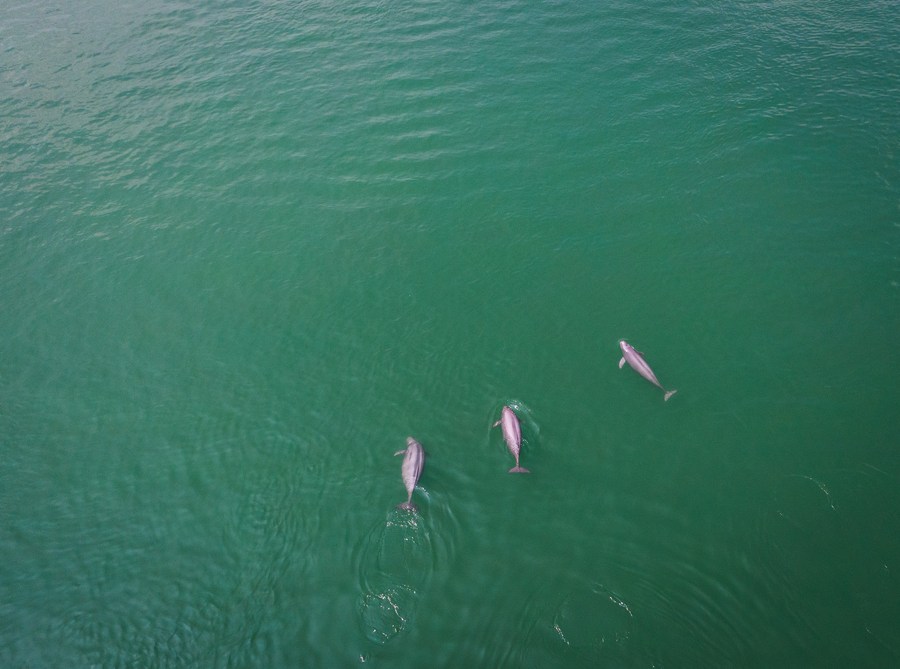Every day, Yang He, a 64-year-old photographer, wakes up in the wee hours and drives to the bank of the Yangtze River in the central Chinese city of Yichang.
Upon arrival, he patiently waits there for a pod of finless porpoises to emerge from the glistening water, hoping to capture their beauty through his lens.
As a devoted admirer of the finless porpoise, this shutterbug has taken over 100,000 vivid photos of the endangered species in the past six years.
"I know this group of finless porpoises very well. They are just like my children. As soon as one of them emerges from the water, I can tell which family it belongs to," Yang said.
The Yangtze finless porpoise, the namesake of China's longest river, is so connected to the Yangtze River that any change in the health of its environment can support or threaten its survival.
The Yangtze finless porpoise is under top-level national protection in the country. In 2006, surveys began to collect vital data on this endangered species. Over the last five years alone, the population of Yangtze finless porpoises has increased to 1,249, marking a rise of 23.4 percent.

A long-time resident of Yichang, Yang has observed and captured the changes with his camera.
"I first encountered a finless porpoise as a teenager when there were far fewer boats on the Yangtze River. I would frequently observe them trailing boats as they made their way down the river," Yang said, adding that as human activity increased, finless porpoises became rare along the Yichang section of the river.
Over the past few decades, there has been a substantial decrease in the finless porpoise population, primarily caused by overfishing and excessive human activity. However, significant measures have been implemented to reverse the fate of this species.
In 2017, Yang was fortunate enough to spot a finless porpoise after a long gap and capture a photo of it. By 2019, he was able to snap even more photos, including images of the porpoises skillfully catching fish near the riverbank.
"This is a distinctive sight in the Yichang region and serves as evidence of the improved ecological environment in the Yangtze River basin," Yang said.

Today, pods of these captivating creatures can once again be observed leaping above the water's surface, allowing enthusiastic shutterbugs and local residents to marvel at their beauty.
"I will continue to capture their beauty as long as I am able to hold a camera and keep a vigilant eye on them," Yang said, adding that he will make it his life's mission to document this remarkable creature.

